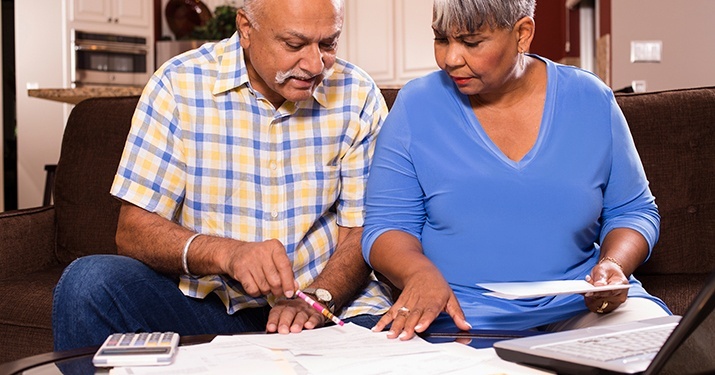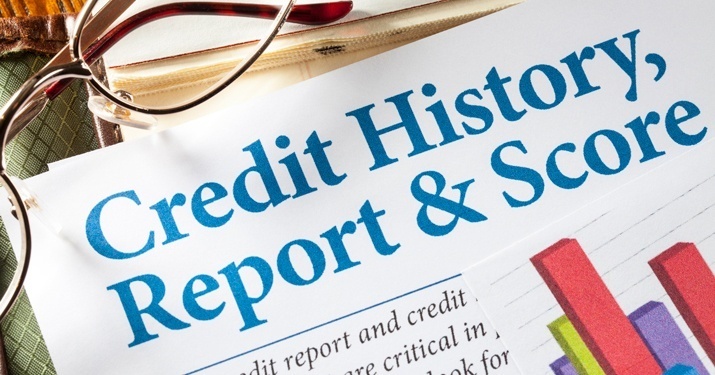
How to Get Pre-approved for a Mortgage on the First Try
First time home buyers often have to jump through additional hoops while applying for their first mortgage. Lenders want assurances that you’re ready to take on such a massive financial commitment before they offer a pre-approval. Thankfully, there a multitude of ways you can increase your chances of qualifying for a mortgage with attractive loan terms on the first try.
Tip #1: Do an Audit of your own Finances
 If you find that your credit score is less than desirable, the first thing you should do is download your credit report for free at AnnualCreditReport.com. Check the report for any errors that may be dragging you down, and report them to the bureau. In order to qualify for a mortgage, you’ll need to prove that your finances are rock solid. One indicator lenders will look for is a credit score of at least 680, although over 700 is ideal. A higher credit score means a higher chance of pre-approval and lower interest rate. You can check your FICO score on websites like CreditKarma.com.
If you find that your credit score is less than desirable, the first thing you should do is download your credit report for free at AnnualCreditReport.com. Check the report for any errors that may be dragging you down, and report them to the bureau. In order to qualify for a mortgage, you’ll need to prove that your finances are rock solid. One indicator lenders will look for is a credit score of at least 680, although over 700 is ideal. A higher credit score means a higher chance of pre-approval and lower interest rate. You can check your FICO score on websites like CreditKarma.com.
Take the time to improve your credit score before applying for a mortgage. There a plenty of tips out there that can help you slowly, but surely, raise your score and save you a ton of money on interest and fees in the long run.
Tip #2: Save, Save, Save
 If 10% is still difficult, there are multiple first time home buyer programs that enable you to get a mortgage with only 3.5% to 5% down. One example of this is an FHA loan from the Federal Housing Administration. The government agency backs these mortgages, which allow lenders to offer approvals to individuals with shakier credit and less money available up-front. While you may get the loan with a lesser down payment, also be prepared to pay an additional amount each month for private mortgage insurance (PMI).One of the biggest challenges first time home buyers face is saving up for a down payment. Since you don’t have any capital in a current home to put towards the down payment, you need to save for it on your own. The standard amount is 20% of the home’s purchase price, but many lenders will approve a mortgage with as little as 10% down.
If 10% is still difficult, there are multiple first time home buyer programs that enable you to get a mortgage with only 3.5% to 5% down. One example of this is an FHA loan from the Federal Housing Administration. The government agency backs these mortgages, which allow lenders to offer approvals to individuals with shakier credit and less money available up-front. While you may get the loan with a lesser down payment, also be prepared to pay an additional amount each month for private mortgage insurance (PMI).One of the biggest challenges first time home buyers face is saving up for a down payment. Since you don’t have any capital in a current home to put towards the down payment, you need to save for it on your own. The standard amount is 20% of the home’s purchase price, but many lenders will approve a mortgage with as little as 10% down.
Not only do lenders want to see the down payment, they want to know that you’ll have money set aside for emergencies and for continued upkeep and maintenance on the home. Plus, there will be additional closing costs required up-front before you can officially buy the home, so planning accordingly and saving money for your first home is a must.
Tip #3: Shop around for a lender you trust

Not all lenders are created equal. While you may be denied a loan from one credit union, another credit union may utilize different loan qualifications. Financial institutions will also have varying interest rates, fees, and loan terms available. The lender and mortgage consultants you choose to work with will greatly impact your satisfaction throughout the home buying process and in the future when you’re working to pay off your loan.
Tip #4: Come prepared

Applying for a mortgage requires a lot of paperwork. Make sure you’re keeping track of and are able to gather the below documents if your lender asks for them.
- Bank account statements going back six months
- Evidence of various assets, like stocks or retirement funds
- Multiple pay stubs to provide proof of income
- A list of your current credit cards and outstanding balances on those cards
- A list of all loans in your name and the outstanding balances on those loans
- Income tax statements for the past couple years
- Contact information for someone who can provide verification of employment
Different lenders require different information, but if you come prepared, you won’t have to delay the process while you search for the required paperwork.
Tip #5: Make the mortgage your first priority
 Tip #6: Keep researching
Tip #6: Keep researching
Don’t apply for any other form of credit or lending while applying for a mortgage. Doing so may cause a hit to your credit, which will make the lender think twice about approving your application. Wait to buy that new car, or any other financing until after you close on your new home. For more first time home buyer tips, check out our free First Time Home Buyer Guide. Download the guide today and we’ll walk you through every step of the home buying process!Following these tips will increase the chance that you’ll get your mortgage pre-approval on the first try, with the most desirable loan terms. Buying your first house can be stressful, but as long as you’ve done your research and come prepared, the process will go smoothly.
For more first time home buyer tips, check out our free First Time Home Buyer Guide. Download the guide today and we’ll walk you through every step of the home buying process!Following these tips will increase the chance that you’ll get your mortgage pre-approval on the first try, with the most desirable loan terms. Buying your first house can be stressful, but as long as you’ve done your research and come prepared, the process will go smoothly.

-2.png?width=300&height=65&name=AFCU-logo-2019-white-sm%20(1)-2.png)